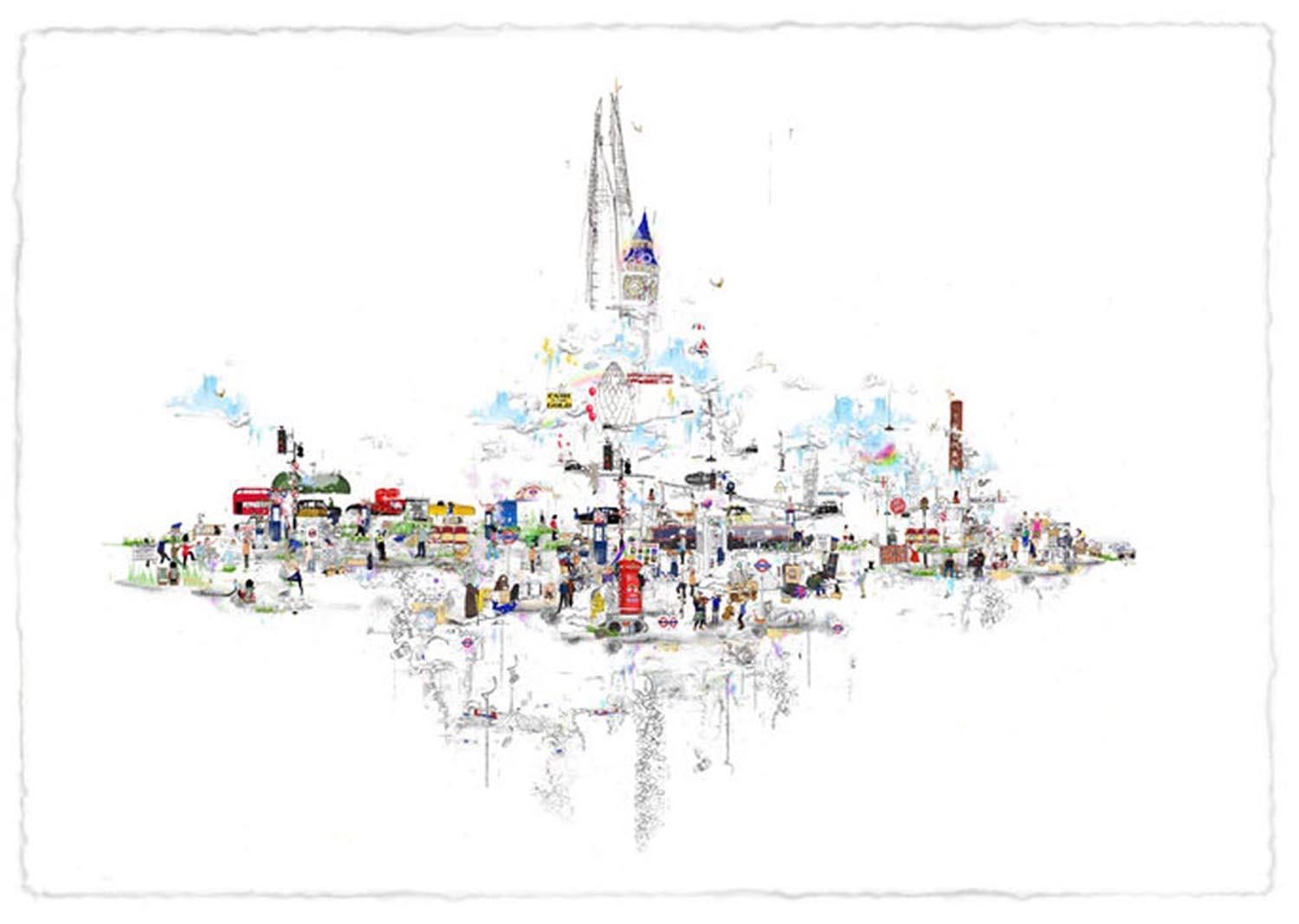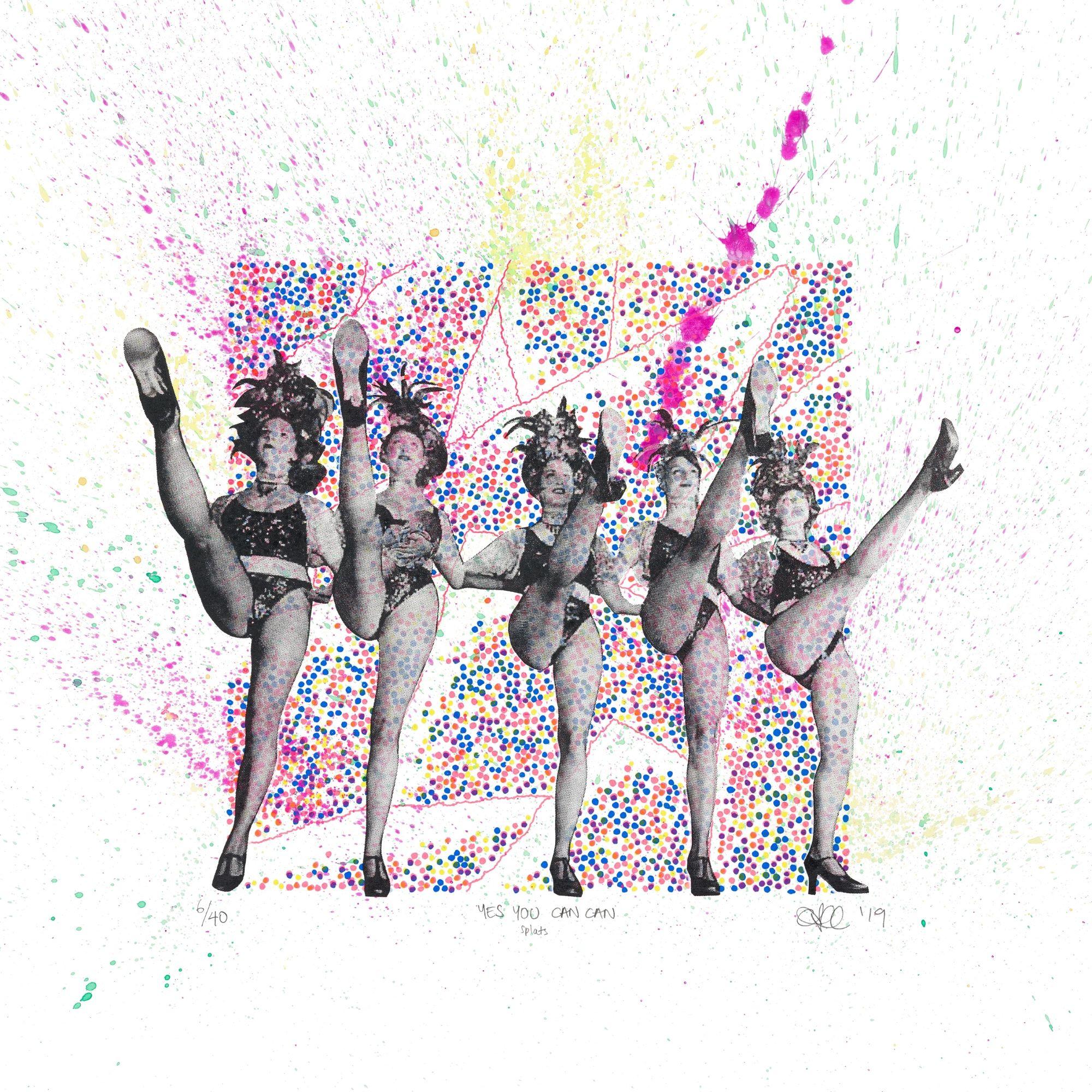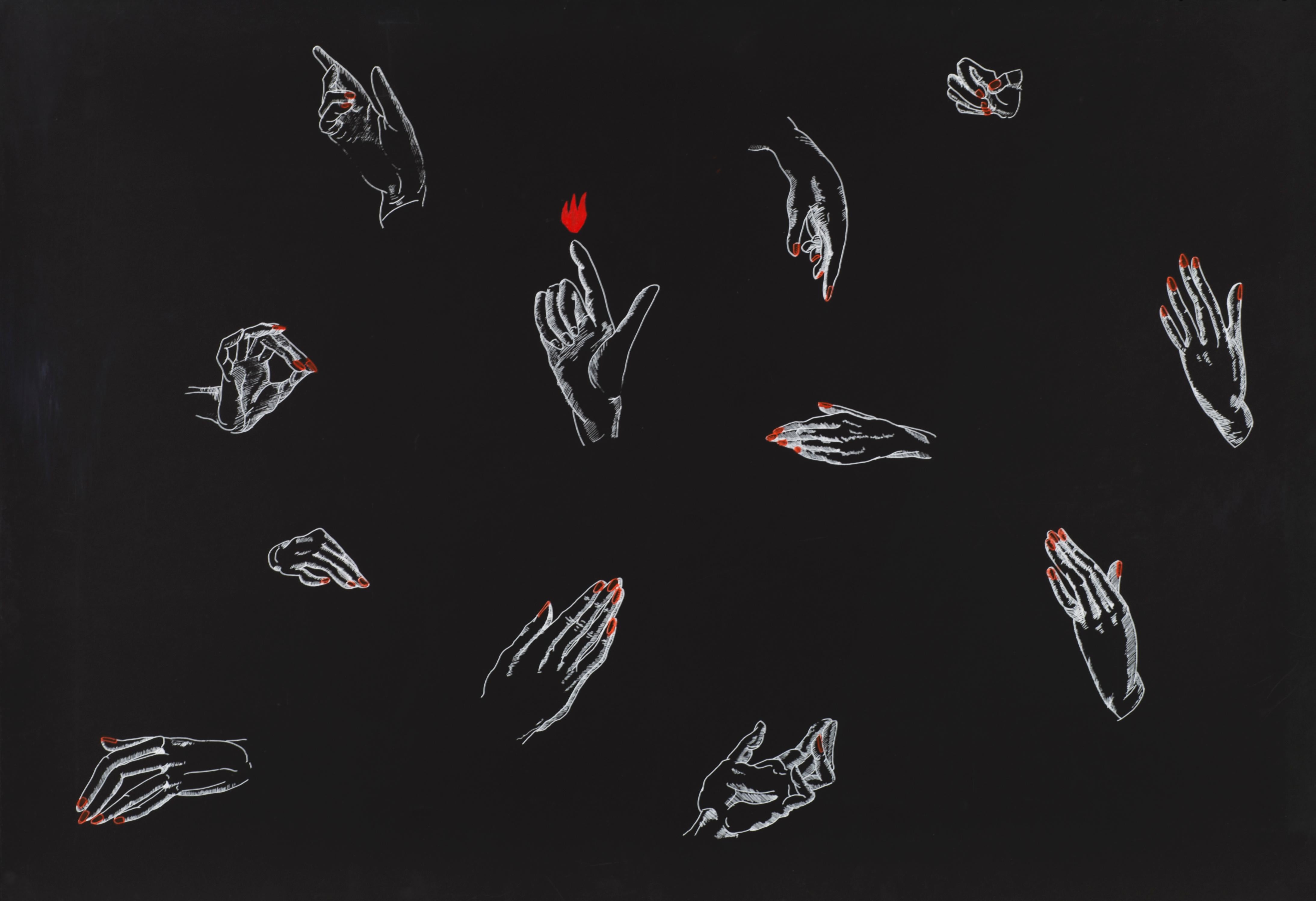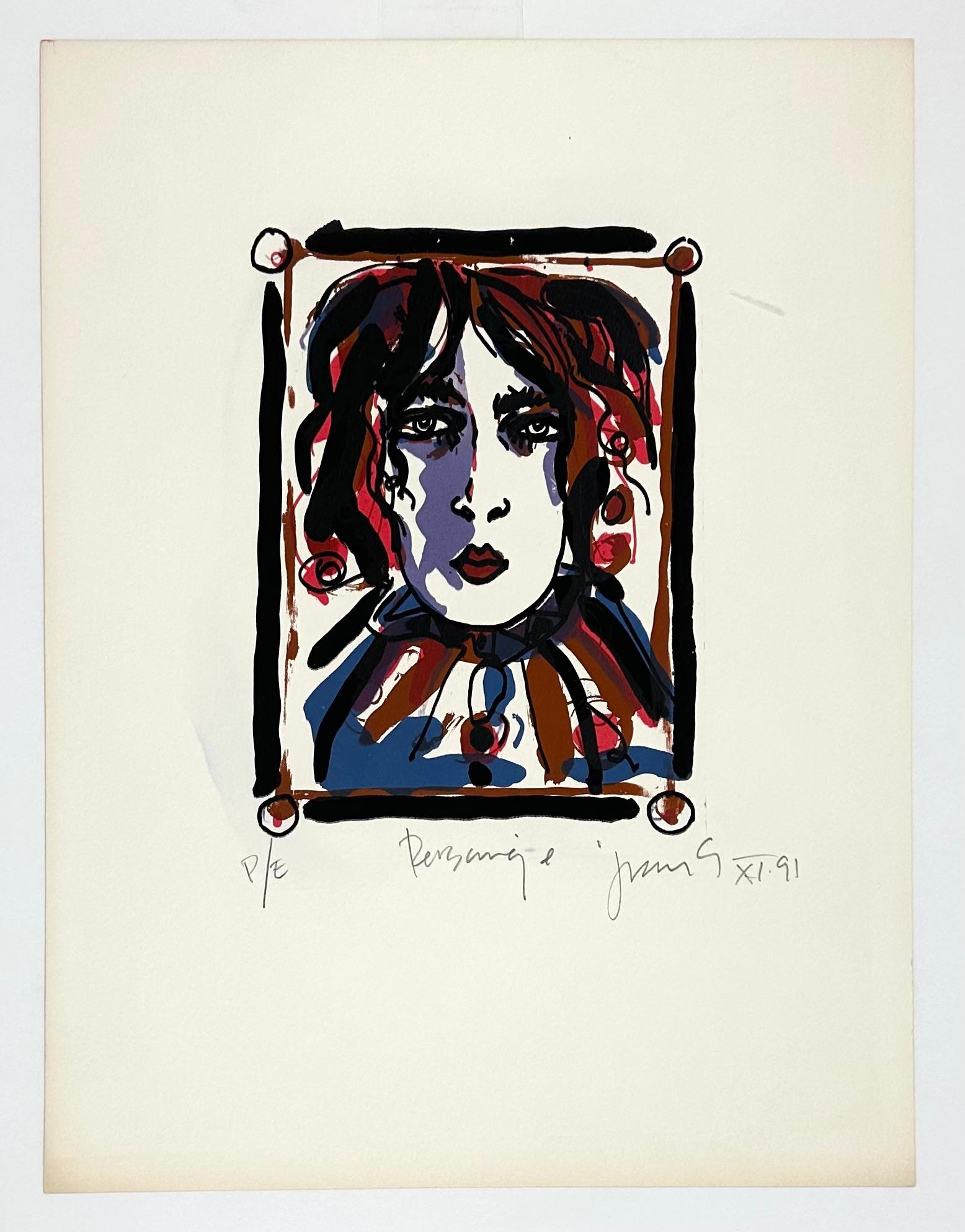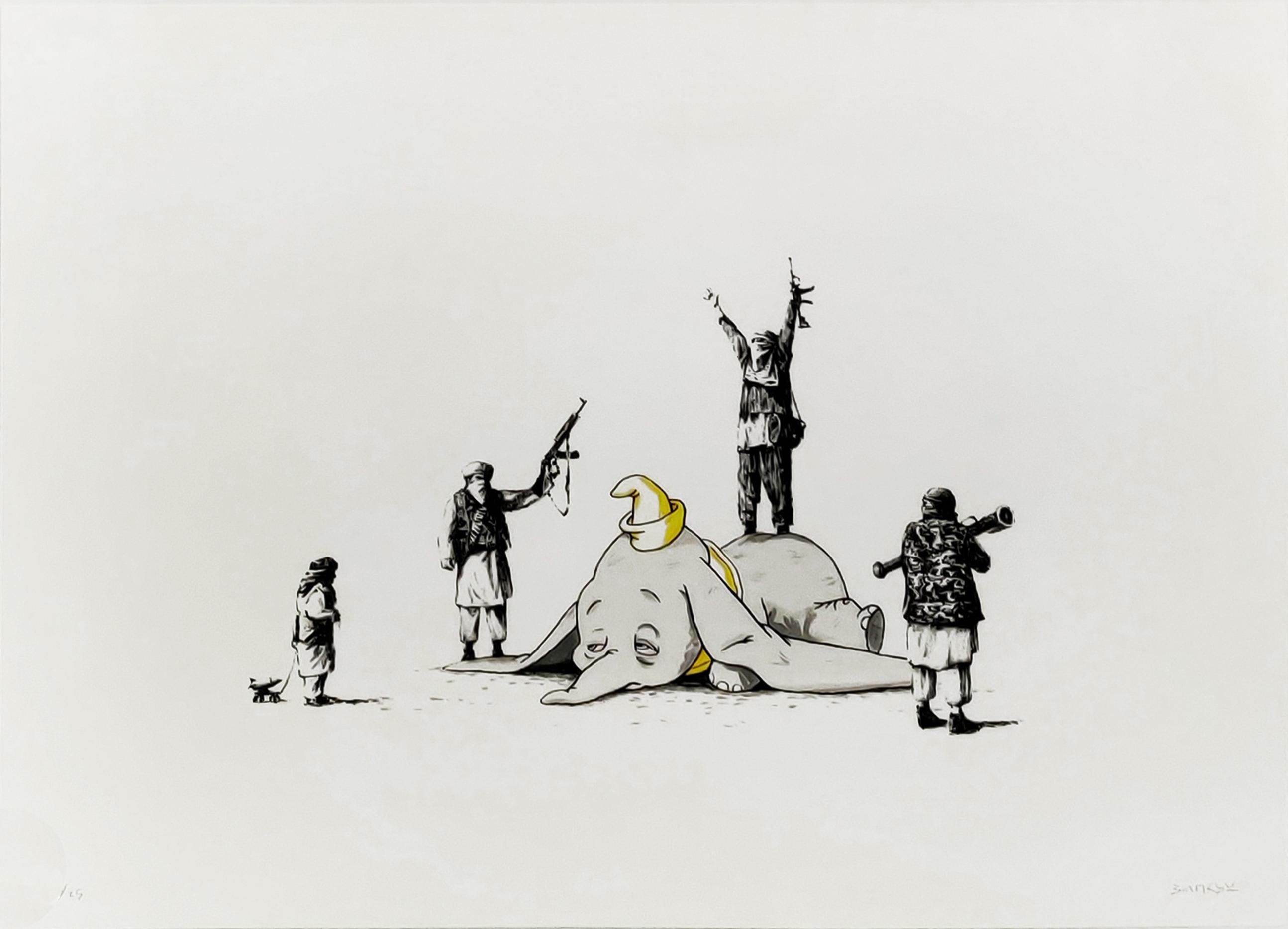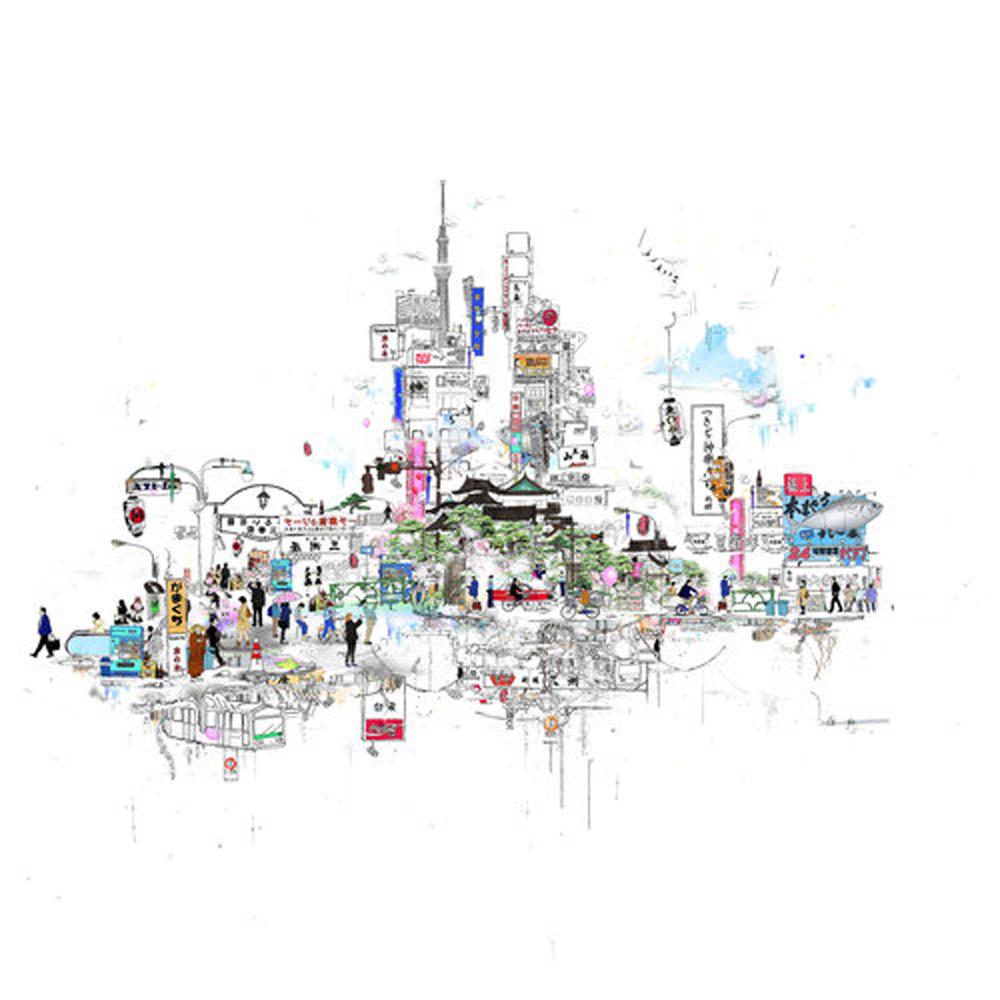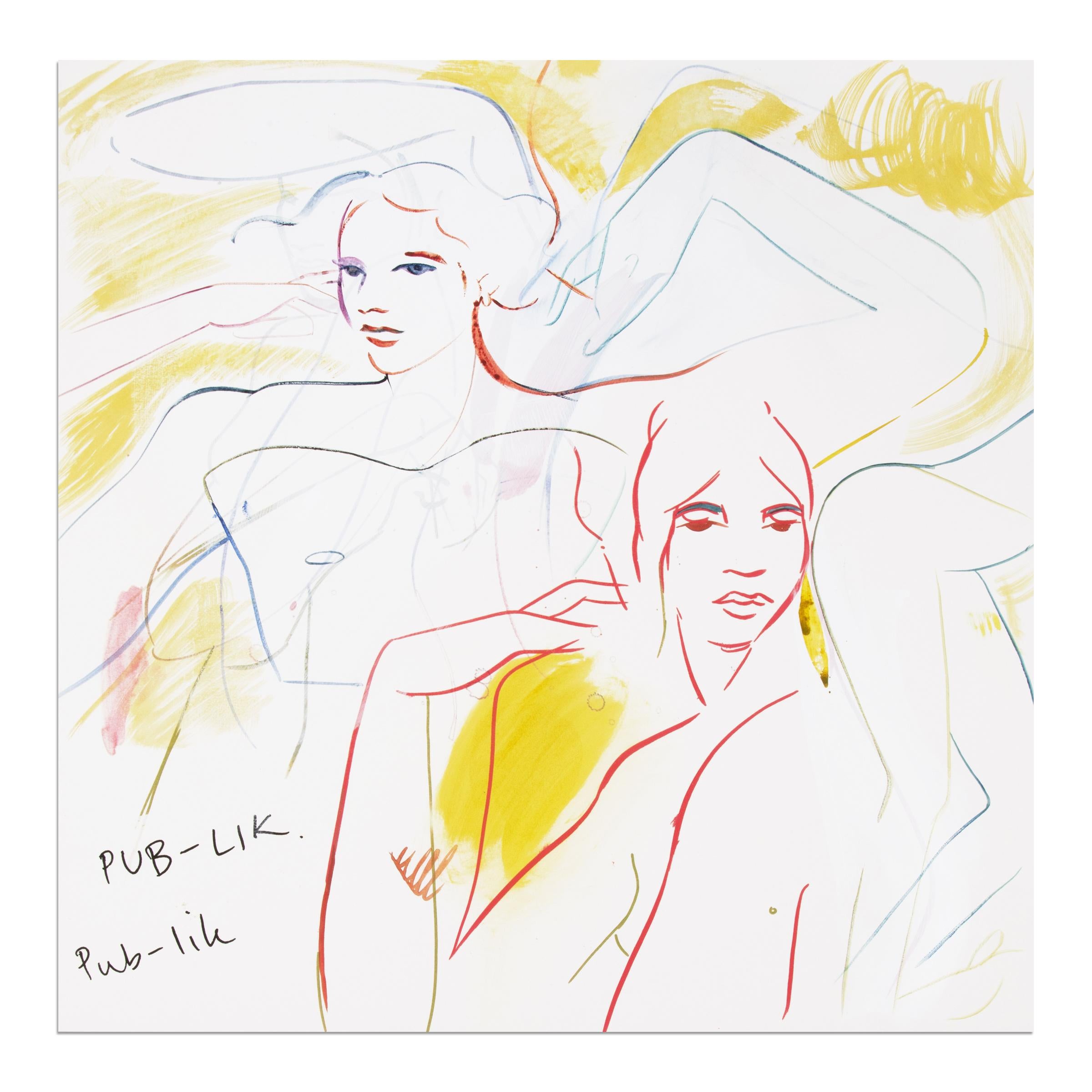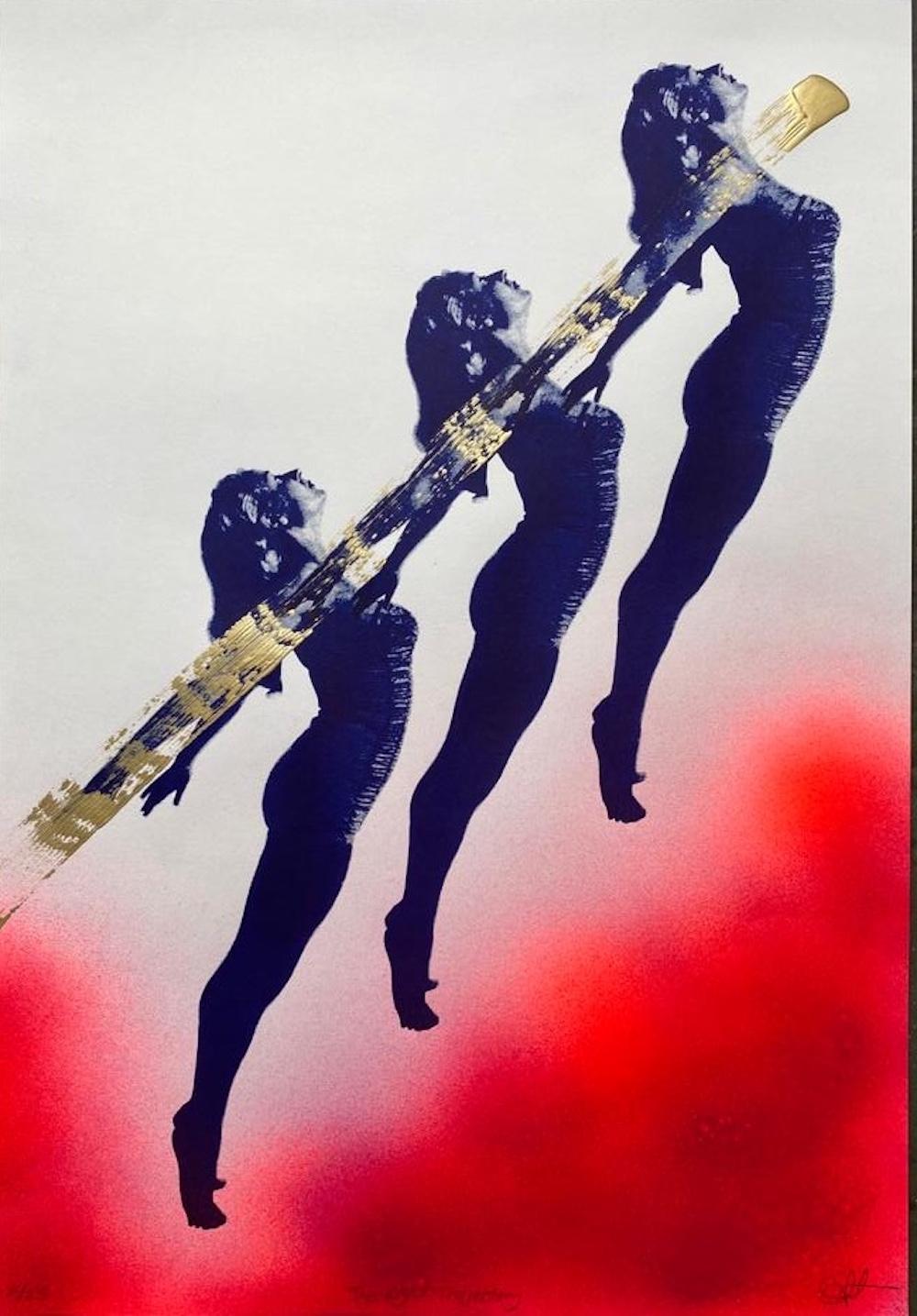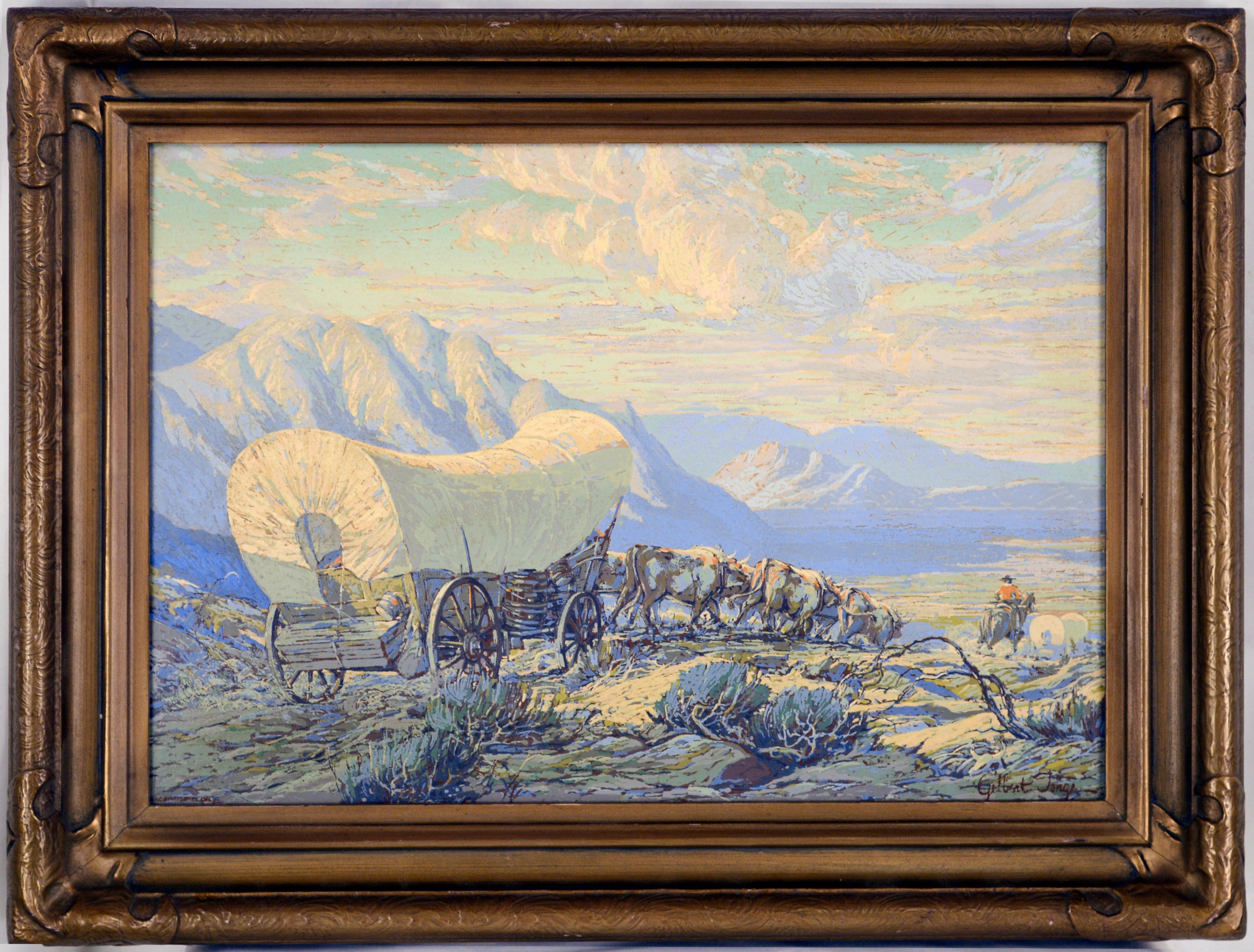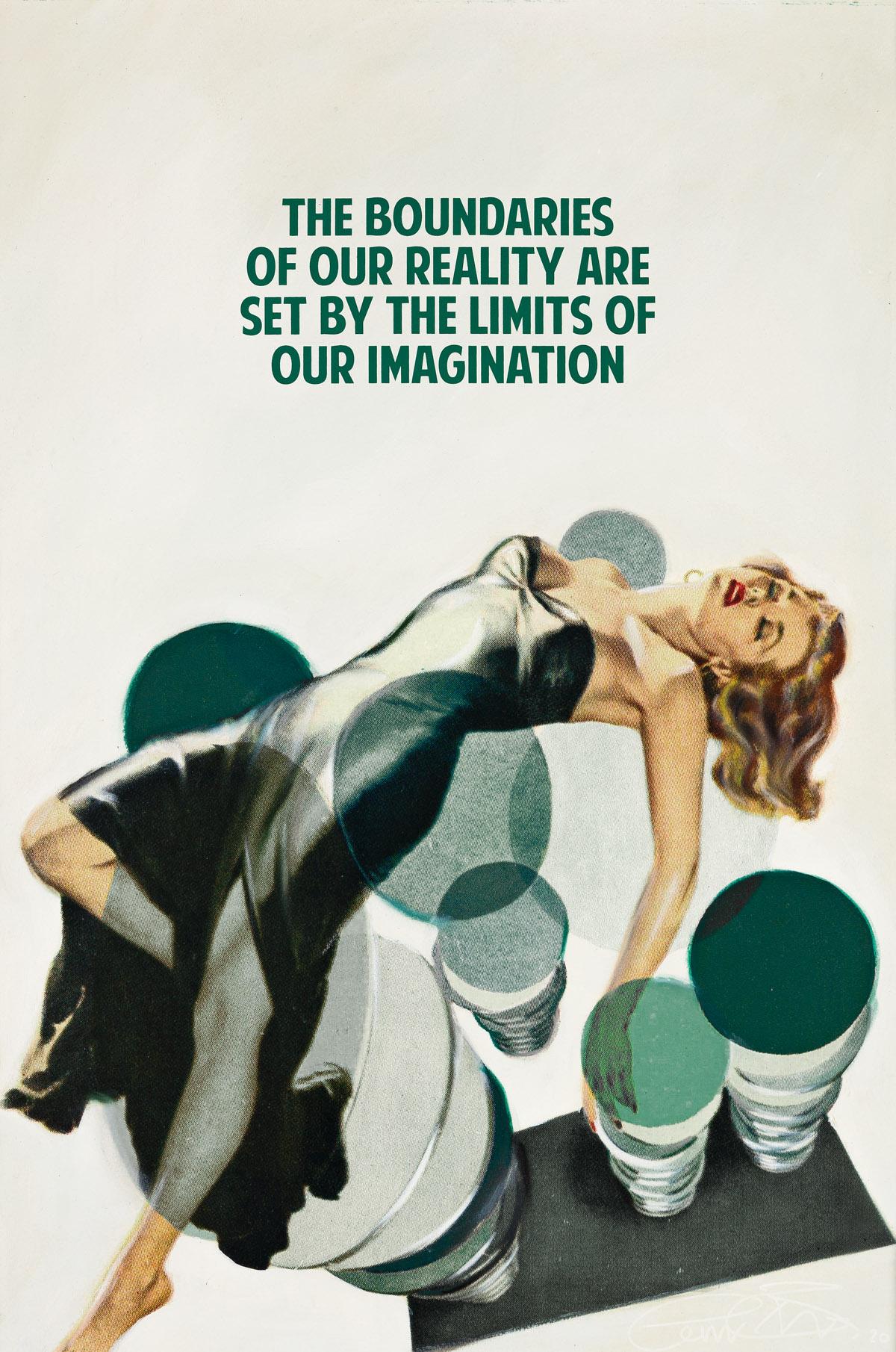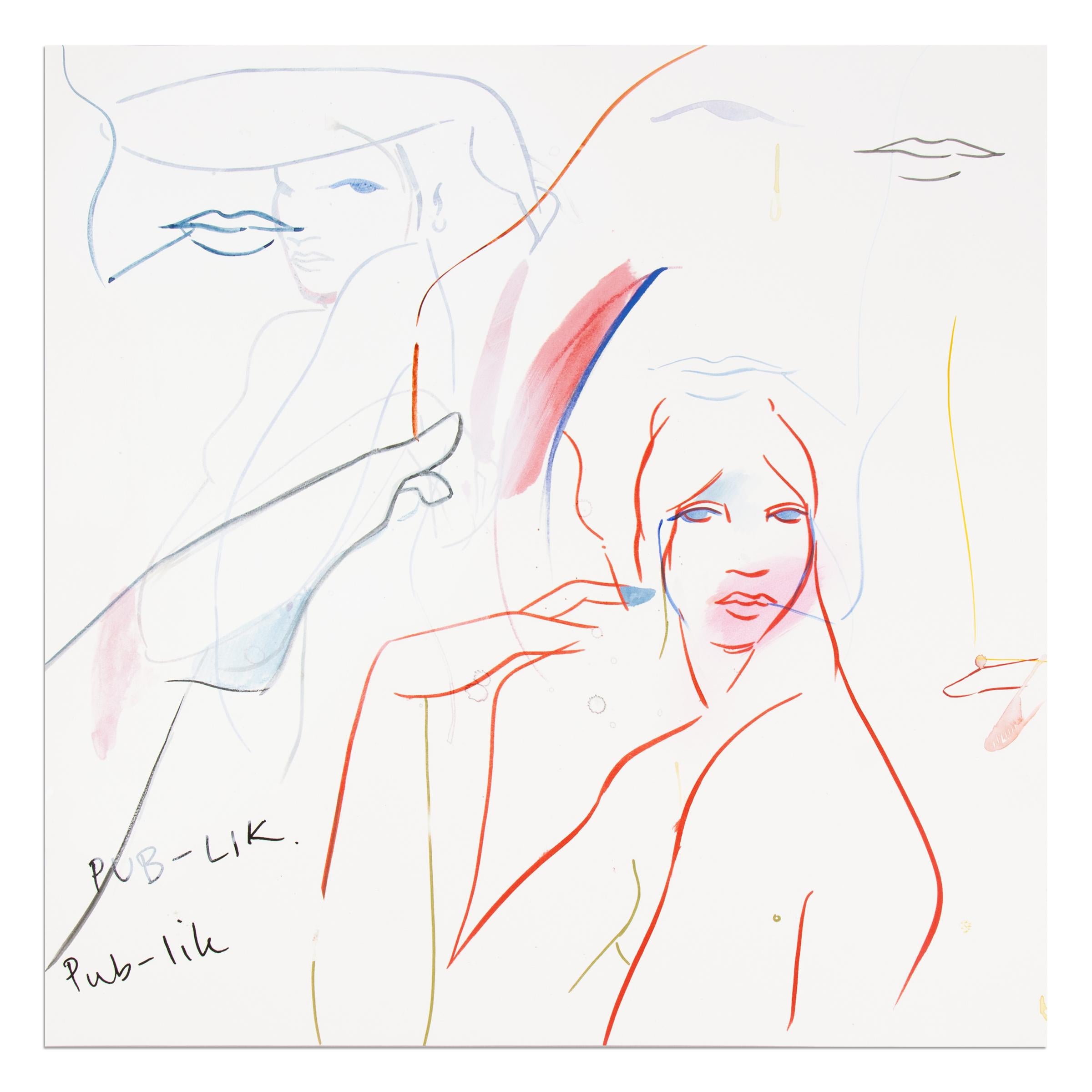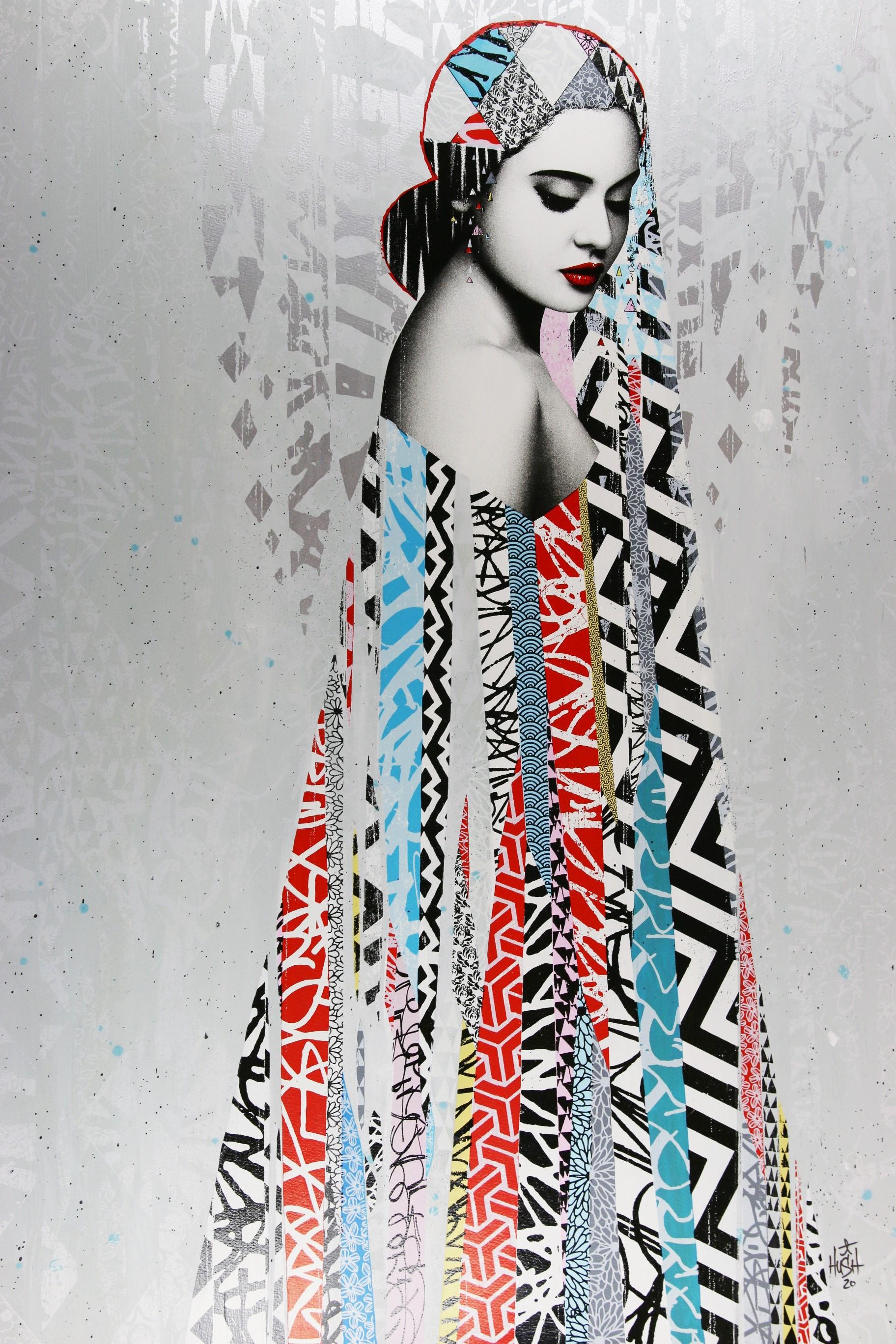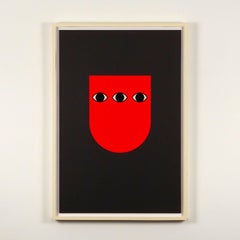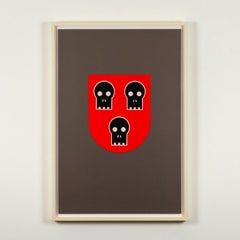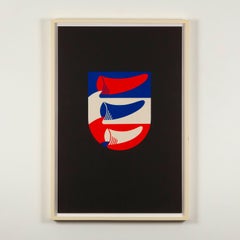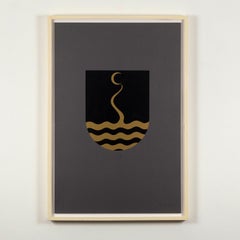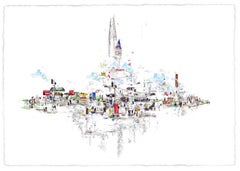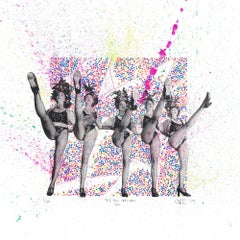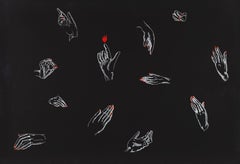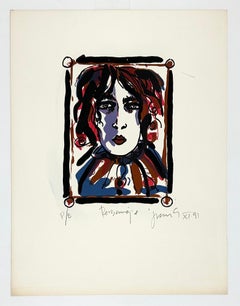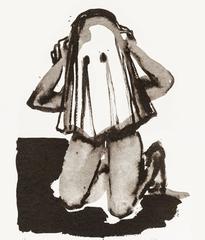
Faceless
View Similar Items
Want more images or videos?
Request additional images or videos from the seller
1 of 9
Marlene DumasFaceless1993
1993
About the Item
- Creator:Marlene Dumas (1953, South African)
- Creation Year:1993
- Dimensions:Height: 11.5 in (29.21 cm)Width: 8 in (20.32 cm)
- Medium:
- Period:
- Condition:
- Gallery Location:Toronto, CA
- Reference Number:Seller: 05-20161stDibs: LU2152991473
About the Seller
4.8
Gold Seller
Premium sellers maintaining a 4.3+ rating and 24-hour response times
Established in 2009
1stDibs seller since 2015
189 sales on 1stDibs
Typical response time: 3 hours
Authenticity Guarantee
In the unlikely event there’s an issue with an item’s authenticity, contact us within 1 year for a full refund. DetailsMoney-Back Guarantee
If your item is not as described, is damaged in transit, or does not arrive, contact us within 7 days for a full refund. Details24-Hour Cancellation
You have a 24-hour grace period in which to reconsider your purchase, with no questions asked.Vetted Professional Sellers
Our world-class sellers must adhere to strict standards for service and quality, maintaining the integrity of our listings.Price-Match Guarantee
If you find that a seller listed the same item for a lower price elsewhere, we’ll match it.Trusted Global Delivery
Our best-in-class carrier network provides specialized shipping options worldwide, including custom delivery.More From This Seller
View AllEYEYEYE
By General Idea
Located in Toronto, Ontario
In 1967, General Idea was founded in Toronto by AA Bronson (b. 1946), Felix Partz (1945-1994), and Jorge Zontal (1944-1994). Over the course of 25 years, they made a significant contribution to postmodern and conceptual art in Canada and beyond.
The group was both prolific and multi-disciplinary long before it became de rigueur. They with photography, sculpture, painting, mail art, video, installation, multiples, and performance. While the medium frequently changed, General Idea early introduced talismans or logos that they would revisit and re-envision, including skulls, ziggurats, and poodles.
(The EyeEye crest, for example, reappears in 1993 as a benefit print for the International Festival of Authors)
This print comes from "Fear Management": a set of 8 prints...
Category
1980s Post-Modern Figurative Prints
Materials
Screen
Nine Lives
By General Idea
Located in Toronto, Ontario
In 1967, General Idea was founded in Toronto by AA Bronson (b. 1946), Felix Partz (1945-1994), and Jorge Zontal (1944-1994). Over the course of 25 years, they made a significant cont...
Category
1980s Post-Modern Figurative Prints
Materials
Screen
Cornucopia
By General Idea
Located in Toronto, Ontario
In 1967, General Idea was founded in Toronto by AA Bronson (b. 1946), Felix Partz (1945-1994), and Jorge Zontal (1944-1994). Over the course of 25 years, they made a significant contribution to postmodern and conceptual art in Canada and beyond.
The group was both prolific and multi-disciplinary long before it became de rigueur. They use photography, sculpture, painting, mail art, video, installation, multiples, and performance.
With their subversive approach and interest in parody and appropriation, General Idea addressed a broad range of social (and art-world) issues such as the cult of the artist, mass media, queer identity, and consumerism.
Thematic continuity was a key element in General Idea's work. Early on they introduced talismans or logos that they would revisit and re-envision, including skulls, ziggurats, and poodles.
This print comes from "Fear Management": a set of 8 prints...
Category
1980s Post-Modern Figurative Prints
Materials
Screen
The Honeymoon is Over
By General Idea
Located in Toronto, Ontario
In 1967, General Idea was founded in Toronto by AA Bronson (b. 1946), Felix Partz (1945-1994), and Jorge Zontal (1944-1994). Over the course of 25 years, they made a significant contribution to postmodern and conceptual art in Canada and beyond.
The group was both prolific and multi-disciplinary long before it became de rigueur. They with photography, sculpture, painting, mail art, video, installation, multiples, and performance.
With their subversive approach and interest in parody and appropriation, General Idea addressed a broad range of social (and art-world) issues such as the cult of the artist, mass media, queer identity, and consumerism.
Thematic continuity was a key element in General Idea's work. Early on they introduced talismans or logos that they would revisit and re-envision, including skulls, ziggurats, and poodles.
This print comes from "Fear Management": a set of 8 prints that celebrates some of General Idea's defining and most beloved motifs by situating them on a crest. This showcases their clever blend of historical fantasy and invented patrimony.
Many of these self-mythologizing crests debuted in 1986 during their exhibition at the Albright-Knox Art Gallery in Buffalo entitled: The Armoury of the 1984 Miss General Idea Pavillion.
This series is a defining example of one of General Idea's most iconic motifs, the crest, which showcases their clever blend of historical fantasy and invented patrimony.
Centered on a handpainted background, "The Honeymoon...
Category
1980s Post-Modern Figurative Prints
Materials
Screen
The Hand of the Spirit of Miss General Idea
By General Idea
Located in Toronto, Ontario
In 1967, General Idea was founded in Toronto by AA Bronson (b. 1946), Felix Partz (1945-1994), and Jorge Zontal (1944-1994). Over the course of 25 years, they made a significant contribution to postmodern and conceptual art in Canada and beyond.
The group was both prolific and multi-disciplinary long before it became de rigueur. They with photography, sculpture, painting, mail art, video, installation, multiples, and performance.
With their subversive approach and interest in parody and appropriation, General Idea addressed a broad range of social (and art-world) issues such as the cult of the artist, mass media, queer identity, and consumerism.
Thematic continuity was a key element in General Idea's work. Early on they introduced talismans or logos that they would revisit and re-envision, including skulls, ziggurats, and poodles. Perhaps one of the earliest of these icons is the pinching hand, or "Hand of the Spirit" which debuts around 1972 and appears frequently throughout the decade.
Centered on a hand-painted background, "The Hand of the Spirit of Miss General Idea" features a vibrant crest that displays a hand with fingers curled in a mystical gesture.
This print comes from "Fear Management": a set of 8 prints...
Category
1980s Post-Modern Figurative Prints
Materials
Screen
Down the Drink
By General Idea
Located in Toronto, Ontario
In 1967, General Idea was founded in Toronto by AA Bronson (b. 1946), Felix Partz (1945-1994), and Jorge Zontal (1944-1994). Over the course of 25 years, they made a significant contribution to postmodern and conceptual art in Canada and beyond.
The group was both prolific and multi-disciplinary long before it became de rigueur. They with photography, sculpture, painting, mail art, video, installation, multiples, and performance. While the medium frequently changed, General Idea early introduced talismans or logos that they would revisit and re-envision, including skulls, ziggurats, and poodles.
(The EyeEye crest, for example, reappears in 1993 as a benefit print for the International Festival of Authors)
This print comes from "Fear Management": a set of 8 prints...
Category
1980s Post-Modern Figurative Prints
Materials
Screen
You May Also Like
We are London Landscape, contempoary cityscape screen print
By Laura Jordan
Located in Deddington, GB
We Are London Landscape by London contemporary artist Laura Jordon.
84 x 118cm – Unframed.
Printed on archival paper with a hand finished overlay of pencil watercolour and collage.
S...
Category
21st Century and Contemporary Contemporary Landscape Prints
Materials
Glitter, Watercolor, Archival Paper, Screen
Yes You Can Can
Located in Deddington, GB
Yes You Can Can (Splats Edition) by Amy Gardner [2020]
limited_edition
Screen Print, Watercolour
Edition number 40
Image size: H:50 cm x W:50 cm
Sold Unframed
Please note that insitu images are purely an indication of how a piece may look
Only AP works left in this edition. This print is about women supporting women. 'YES YOU CAN CAN' splats edition limited edition of 40 Archival Bread & Butter bright white paper 270gsm 50x 50cms 5 screen...
Category
21st Century and Contemporary Pop Art Figurative Prints
Materials
Paper, Watercolor, Screen
Acts I-2 #1
Located in Montreal, Quebec
In Acts 2:3 of the Bible, flaming tongues lap at the disciples, conferring upon them the ability to speak languages not their own. These fiery tongues have signified the power of speech, persuasion, and the ability to preach to the masses. Ingrid Bachmann’s tongues in Pinocchio’s Dilemma are glossy as if sugarcoated and boiled into hard candies—a crystallization process. They are the only of her works that people have tried to lick. Alternately seductive and repulsive, they wag mechanically at eye-level, emitting a small wind-up machine language of their own.
The tongue gives the impression an attempt to tell, a revealing of secrets. On the opposing side of the room, a rod extends slowly from a hole in the wall, inching out, then back in. Pinocchio’s nose is an instantly recognizable stand-in for lies, liars, fakes. Pinocchio originated as the protagonist of a 19th-century children’s book by the Italian writer Carlo Collodi, and was most famously adapted by The Walt Disney Company. The pre-Disney Pinocchio is unruly, violent and mischievous; his story was originally intended to be a tragedy in which the marionette is hung from an oak tree branch by his enemies.
Angry Work contains a latent violence—that which is found in childhood games, stories, myths, novels, and in the tools of the everyday. Two 14-foot-long knitting needles—domestic weaponry—lean as dead as stones, cool and silent, against the wall. These weighted objects commune with three bronze tongues, pre-vocalizations, embalmed. Bronze is a silent material.
Two drawings invoke Cassandra, who was promised the gift of prophecy by Apollo. When Apollo appeared to her, she refused his sexual advances. In some iterations of the story, Apollo appeared as a wolf surrounded by mice and spat on her tongue. She awoke with a taste on her tongue. Maybe metallic, maybe red. She had been granted the gift of prophecy, with one condition: no one would believe her. This burdened us with one of the earliest models of hysteria—speaking in tongues, speaking marred truths. Bachmann maintains that Angry Work is not limited to women’s anger, or to personal anger. It’s about generalized anger.
“The red world And corresponding red breezes.” [1]
A cloud of anger, hints of red. An amorphous unknown. “The Airborne Toxic Event” [2] that encapsulates truth, lies, histories repeated, struggle, strife, shock, grappling and anger, anger, anger.
I am told that The Angry Machine weighs 400 pounds and emits a mechanized hum. It will be fenced in, for the protection of both viewers and itself. It will not perform on demand, but at scheduled intervals, only occasionally. It has a projectile that is red. Red is the memory of a children’s game, trying to avoid hitting yourself, to avoid the smack of something against your skin. Red is interiority: the tongue, cheeks, throat and kisses. One can “see red” in a fit of rage. Red is blood, and red is romance — “roses being burned alive.” [3]
[1] Anne Carson...
Category
2010s Contemporary Figurative Prints
Materials
Watercolor, Screen
"Personaje" 1991 Signed Original Silkscreen & Watercolor Proof 16x12in Cubism
Located in Miami, FL
"Juan Sebastian Barbera (Mexico, 1964)
'Personaje', 1991
Silkscreen and Watercolor on paper Velin Arches 300 g.
15.8 x 11.9 in. (40 x 30 cm.)
ID...
Category
1990s Contemporary Portrait Prints
Materials
Screen, Watercolor
DUMBO
By Banksy
Located in Aventura, FL
Screen print & hand-finished watercolor on paper. Hand signed and numbered by the artist. Pest Control included.
Banksy’s Dumbo is an extremely rare Ban...
Category
2010s Street Art Figurative Prints
Materials
Paper, Screen, Watercolor
$595,000
Tokyo Lights, Contemporary Cityscape Print, Japanese Cityscape Print
By Laura Jordan
Located in Deddington, GB
Tokyo Lights is a limited edition cityscape print by Laura Jordan. The process in which Laura creates her work is that she produces lots of small illu...
Category
2010s Contemporary Figurative Prints
Materials
Glitter, Watercolor, Archival Paper, Screen
